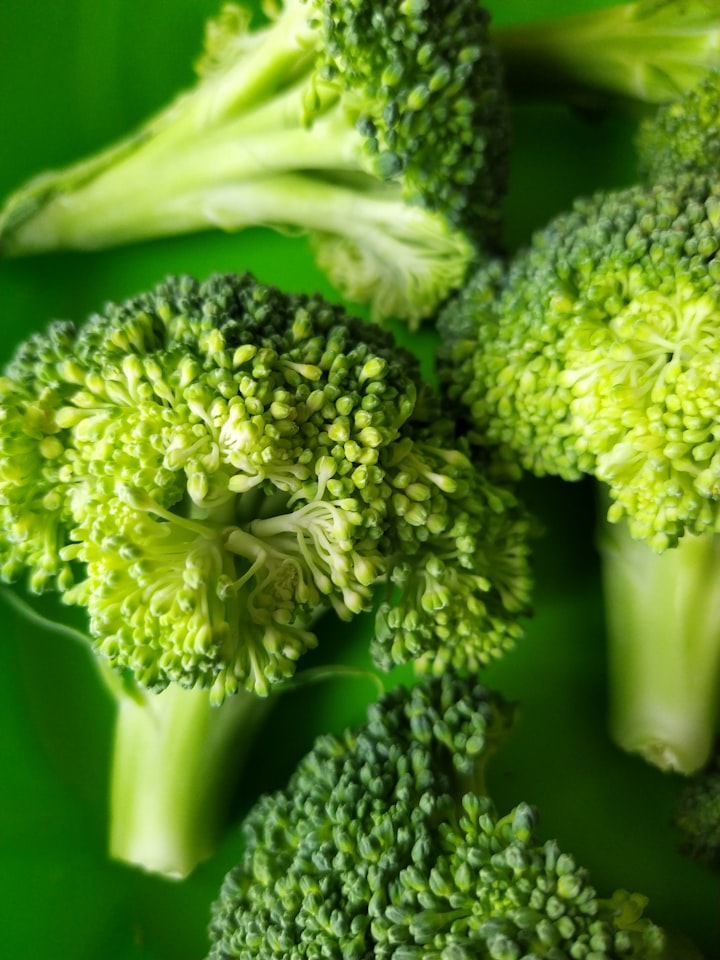
Broccoli is a nutritious vegetable that offers a wide range of health benefits. Here are some of the key benefits of broccoli:
Rich in essential nutrients: Broccoli is considered a nutrient powerhouse as it is rich in essential nutrients. Here are some of the key nutrients found in broccoli:
Vitamin C: Broccoli is an excellent source of vitamin C, which is important for immune function, collagen production, and wound healing. A 100-gram serving of broccoli can provide over 100% of the recommended daily intake of vitamin C.
Vitamin K: Broccoli is high in vitamin K, which is crucial for blood clotting and bone health. Adequate vitamin K intake helps maintain strong bones and may reduce the risk of fractures.
Vitamin A: Broccoli contains beta-carotene, which the body can convert into vitamin A. Vitamin A is essential for vision, immune function, and cell growth.
Folate: Broccoli is a good source of folate, a B vitamin that plays a vital role in DNA synthesis, red blood cell production, and fetal development during pregnancy.
Potassium: Broccoli contains potassium, an important mineral that helps regulate blood pressure, maintain proper heart function, and support muscle and nerve function.
Fiber: Broccoli is high in dietary fiber, which promotes healthy digestion, aids in weight management, and helps maintain stable blood sugar levels. Fiber also contributes to a feeling of fullness, which can help control appetite.
Calcium: While not as high in calcium as dairy products, broccoli does contain a significant amount of this mineral. Calcium is essential for maintaining strong bones and teeth, muscle function, and nerve transmission.
Iron: Broccoli provides a small but notable amount of iron, a mineral necessary for the production of red blood cells and oxygen transport in the body.
Magnesium: Broccoli contains magnesium, which is involved in hundreds of biochemical reactions in the body. Magnesium is important for muscle and nerve function, energy production, and maintaining healthy bones.
Antioxidants: Broccoli is rich in various antioxidants, including flavonoids, carotenoids, and glucosinolates. These compounds help protect the body's cells from oxidative stress and may reduce the risk of chronic diseases like cancer and heart disease.
Incorporating broccoli into your diet can help ensure that you're getting a wide range of essential nutrients that are beneficial for overall health and well-being.
Antioxidant properties: Broccoli is rich in antioxidants such as sulforaphane, glucoraphanin, and quercetin, which help protect the body's cells from damage caused by free radicals. Antioxidants can reduce the risk of chronic diseases like heart disease, cancer, and neurodegenerative disorders.
Cancer prevention: Broccoli has been widely studied for its potential anticancer properties. Sulforaphane, a compound found in broccoli, has been shown to have protective effects against certain types of cancer, including breast, prostate, lung, and colorectal cancer.
Heart health: The fiber, antioxidants, and anti-inflammatory properties in broccoli contribute to cardiovascular health. The vegetable's high fiber content can help lower cholesterol levels, while the antioxidants and anti-inflammatory compounds can reduce the risk of heart disease.
Digestive health: Broccoli is an excellent source of dietary fiber, which aids digestion and promotes regular bowel movements. Fiber can also help prevent constipation, maintain a healthy gut microbiome, and reduce the risk of digestive disorders like diverticulitis and inflammatory bowel disease.
Bone health: Broccoli is rich in vitamin K and calcium, both of which are essential for maintaining strong and healthy bones. Vitamin K plays a crucial role in bone metabolism, while calcium is a key mineral for bone structure and strength.
Eye health: The presence of vitamin A, lutein, and zeaxanthin in broccoli promotes good vision and supports eye health. These nutrients help protect the eyes from age-related macular degeneration and cataracts.
Weight management: Broccoli is low in calories and high in fiber, making it a valuable addition to a weight management diet. The high fiber content helps you feel fuller for longer, reducing the likelihood of overeating.
Skin health: The antioxidants and nutrients present in broccoli contribute to healthy skin. Vitamin C aids collagen production, which helps maintain skin elasticity and prevent wrinkles. Additionally, the vegetable's antioxidants protect the skin from damage caused by free radicals.
Detoxification: Broccoli contains compounds that support the body's detoxification processes. Sulforaphane, in particular, has been shown to enhance detoxification enzymes, helping the body eliminate potentially harmful substances.
Including broccoli in your diet can be an excellent way to support your overall health and well-being. Remember to cook it lightly or consume it raw to retain its nutritional value.






Comments
There are no comments for this story
Be the first to respond and start the conversation.